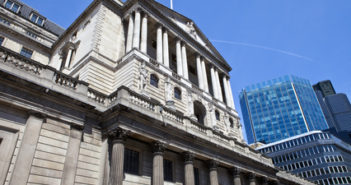The Bank of England makes its rate decision and publishes new forecasts precisely 50 days before Brexit Day. Growing uncertainty about the historic departure is set to paralyze any new decisions. However, Governor Carney can surprise markets by changing assumptions or ramping up contingency plans.
This is a “Super Thursday.” In addition to the regular rate decision and meeting minutes, the BOE also publishes its Quarterly Inflation Report. Governor Mark Carney holds a press conference after the event.
The “Old Lady” makes its rate decision after the UK Parliament instructed the government to renegotiate the Brexit accord with the European Union, basically undoing the Irish Backstop which has been the thorniest issues. The EU immediately rejected the calls. The current situation can be described as a “game of chicken.” If neither side moves, the UK will leave the EU without a deal on March 29th, thus triggering a hard Brexit with dire economic circumstances.
However, both sides can still strike an accord, or at least postpone Brexit Day by a few months. Other options such as a second referendum or new elections are also on the cards.
This uncertainty around Brexit overshadows a relatively robust economic situation in the UK. Real wages are on the rise and accelerating, jobs are aplenty, and inflation is above 2%. House prices have not tumbled, and credit conditions are comfortable, perhaps even too easy. The BOE would have raised rates from the current level of 0.75% had the Brexit issue been resolved.
However, if the UK leaves without a deal, the economy could plunge, even if it does not suffer the BOE’s most adverse scenario. The government’s hard-Brexit scenarios are not that flattering either.
So, the BOE is projected to leave its policy unchanged and wait for the Brexit clouds to clear before raising rates.
The vote by the Monetary Policy Committee (MPC) will likely be unanimous: all nine in favor of making no change. A surprise vote for a rate hike by a hawkish member on the grounds of rising inflation could boost the pound. A vote for cutting rates due to the ticking clock towards Brexit could weigh on Sterling. The most likely scenario is a repeat of the unanimous vote.
Room for Brexit surprises in the QIR and presser
The QIR has projections for inflation and growth. So far, the BOE assumed a smooth Brexit. Is it still the case? Given the ticking clock, the BOE could surprise by providing assumptions that a hard Brexit is now more of a mainstream scenario, thus slashing the forecasts in the QIR. Lower inflation projections and estimates for a recession could send the pound plunging.
Carney may add fuel to the fire in the press conference. In addition to explaining the lower forecasts, the Governor may also provide revelations on the preparations for a no-deal Brexit. Announcing more details on the contingency plans or going as far as saying that some of the programs have been put into action could further pound the pound.
This scenario of assuming a hard Brexit, reducing forecasts and talking about contingencies is not priced in by markets. Carney may certainly avoid going this path as he would be criticized by politicians for intervening in the debate. However, Carney and his colleagues may feel remiss for not doing the right thing at the right time, and not notifying the public on their preparations, even if they risk causing panic.
All in all, an uneventful Super Thursday is priced in, but with 50 days to Brexit, the BOE may surprise.
Get the 5 most predictable currency pairs
BOE preview: Carney can cause carnage with contingencies
